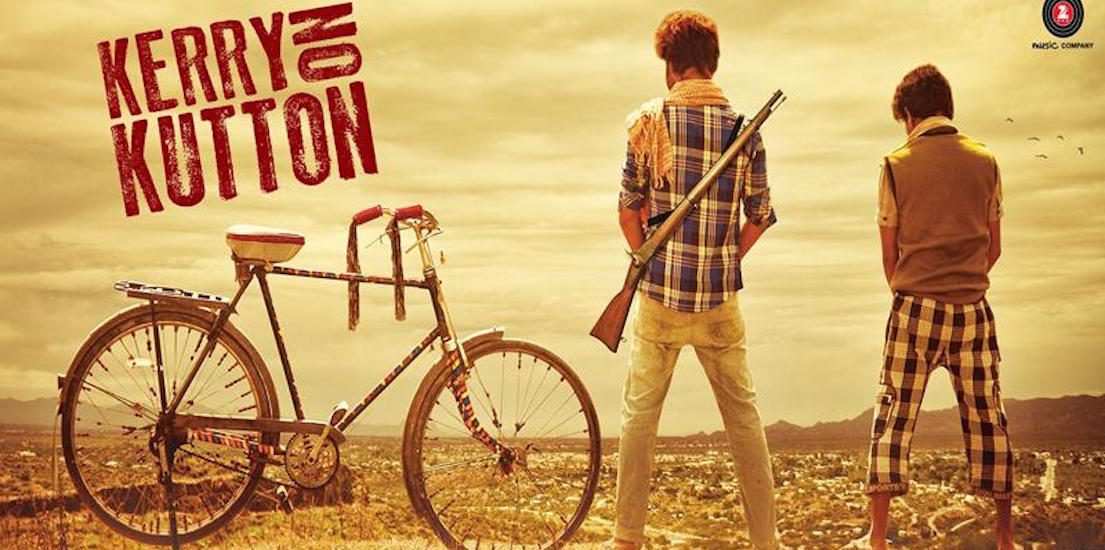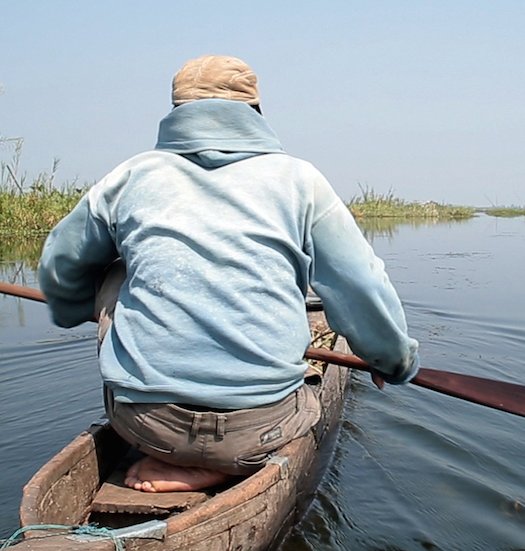Kerry on Kutton – An edgy coming of age story
Set in a rustic Uttar Pradesh town, Kerry on Kutton is a story of youth in rebellion with a strong underlying social message. The movie revolves around four teenagers who have been raised in a distorted environment and how certain situations lead them into criminal activities.
Here are a few excepts from an interview with the director, Ashok Yadav and actors Satyajeet Dubey and Aradhana Jagota, who makes her debut with this film, where they talk about the liberating experience of making this film, and why Kerry on Kutton will define its own genre.
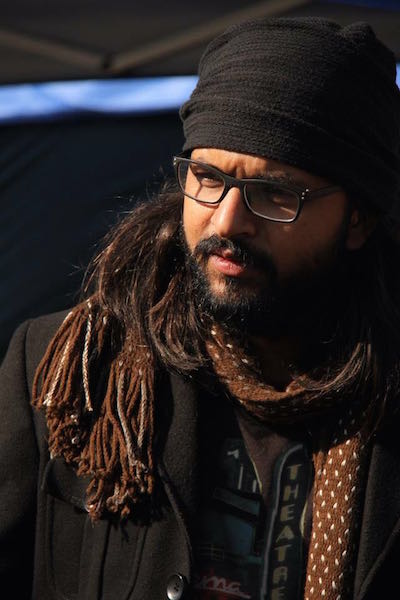
Ashok Yadav
Ashok Yadav, Director
What is the one thing that drove you to make Kerry on Kutton?
Kerry on Kutton is inspired by the feeling of nostalgia, which is a very powerful thing, especially from the town that I come from. I have witnessed many events there. The crime that used to happen there always fascinated me in my early childhood. People there were not very mature. Even getting a girl used to be a big thing. But all that has been overdone from a storytelling point of view. I always wanted to make something on small conflicts, which have never been explored before in an Indian context. That’s what drew me to the script, this story about wannabe criminals and the inner conflict and inner quest that is going on with each character.
WATCH: KERRY ON KUTTON | OFFICIAL TRAILER
Any particular inspirations that you took from real life for your characters?
Yes! There was a guy in my town called Kerry. Nobody understood why he was called that. And Kerry faced these constant challenges in life to get sex. So he was an inspiration, as his story is similar to the character that Satyajeet (Dubey) plays. There was also this criminal in town who was very short. I can’t name him because he is currently in jail. But he would give big talks and was like a philosopher! He had a handful of one-liners. Even he was an inspiration.
The treatment of the film is surreal because the story deals with your inner psyche and inner questions
Elaborate on the visual treatment adopted for this film. Do we get to see portions of real Lucknow in the film?
There is a place in Lucknow called Asarwa Bagh. We needed a construction house in the film, which looked almost hundred years old. I haven’t explored Lucknow much because the film is based in Ballia. But we shot in Lucknow, particularly in areas that ware very old, as it is almost impossible to shoot in Ballia. Lucknow and Ballia are similar in a lot of respects and share the same lingo, culture and attitude. Lucknow has convenient facilities. The cinematic reality is different there. Also the film’s treatment is surreal because the story deals with your inner psyche and inner questions. Sometimes, the film will give you the feeling that it is based in a real space, but sometimes you will think that it is based in a period. The reason behind this is that some towns of India are still living in the 90’s. When I go there, I realize that they haven’t still evolved. Their music, behaviour and even houses still remind me of that time.
Some sequences in the film have also been shot in Kathmandu because Kerry’s father is into pig-farming, and we required a huge farm for that. There were some scenes that weren’t practical to shoot in India.
Can you throw some light on the casting? Was Satyajeet Dubey your first choice for the character of Kerry?
The casting for the character of Kadambri was done right at the beginning. I had seen the trailer of Gangs of Wasseypur 2, and found this boy, Aditya Kumar, to be interesting. I contacted him through Facebook, and he was on board! I wanted to personally audition actors for my film. Satyajeet happened by fluke, much like his character, Kerry. I messaged a friend, who messaged another friend, and after this long chain of ‘via’, Satyajeet came to know that there is an audition happening for a film called Kerry on Kutton. I rejected him at first because I wanted to see another dimension of his acting. But at the back of my mind I knew that he is going to be Kerry.
I knew Aradhana (Jagota, actor) from film school, and I thought that she would be perfect for the film. I knew Karan Mahavar, who plays Suraj, because of an experimental film, which he was a part of, and I was at the editing table. The casting of Kerry’s father in the film was interesting. I had this dilemma that fathers and sons are meant to look similar, but usually in films they don’t. In this film, you’ll actually believe that they are father and son, and yet question that fact because of a sub-plot in the film. That is the funny part of the film.
READ: RAW AND RUSTIC VILLAGE VIBES IN THE POSTER OF KERRY ON KUTTON
What is the message that you would like to give the audience regarding Kerry on Kutton?
The film has a very strong social message. As youth, you struggle to say a lot of things to your father. That makes it a very distorted relationship. But the father has to support the dream of the son. That is a very major message in the film. The second message is a case of distorted upbringing, which needs to be addressed. When people go back home after watching this film, they will have something to think about.
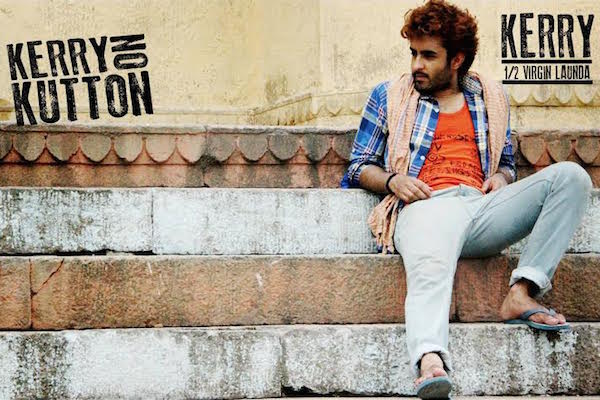
Satyajeet Dubey as Kerry
Satyajeet Dubey, Actor
Did you do anything in particular to get in the skin of your character?
I come from a place called Bilaspur in Chhattisgarh. After completing my schooling in 2007, I shifted to Mumbai. I have been fortunate to have witnessed the grass root level of small-town life. And I have seen the urban side of India as well. So, it is very easy for me to switch. After my first film Always Kabhi Kabhi happened, I was waiting for an opportunity with which I could break the mould. I think because I wanted such a role so badly, I kind of attracted the movie to myself (Laughs). I got the movie in 2013, and after the audition, Ashok and I sat down for six hours and had a long discussion about the film, its narrative and the characteristics of Kerry.
Ashok was very particular that Kerry’s uniqueness was going to be his psyche, and not his physique or the way he looks. It had to be about the way he understands things, the way he approaches life and his one-dimensional pursuit to get laid in life. He doesn’t give a damn about people or the system. He has a quest to try out everything in life, and because of those reasons, he ends up doing a lot of different things. When you are young, you want to try everything. When somebody has had a very weird childhood, for instance, if they don’t have a mother or if their father hasn’t given them proper attention they either become very reserved or they become rebellious. In Kerry’s case, he became a rebel. Judging by our conversation, Ashok was able to determine that I would be able to play this character and pick up the dialect.
Something that I have never done in my life, until I signed Kerry on Kutton was smoking. Ashok told me that my character smoked a lot of beedi. So I had to get into that. I think this method-acting thing has been blown out of proportion. If you understand the script, and have an understanding with your director, you just need to surrender yourself to the process of filmmaking. I had about thirty days, and I went to Lucknow where the pre-production work for the film was going on. I met a lot of people to observer their mannerisms. There were auditions going on for other members of the cast and Ashok showed me some videos of random guys from these auditions to help me work on my character. I picked a lot of stuff from them and even Ashok. As an actor, one has the responsibility to always bring something new to the table. Kerry is by far the most challenging role that I have done, and I had a blast playing it.
Kerry is by far the most challenging role that I have done
How is Kerry on Kutton different from your first two films?
In this film, there was a very democratic approach to filmmaking. There was no hierarchy. Everybody was on the same ground because everybody was so young! We didn’t have the backing of a big producer; it was just a bunch of young cinema enthusiasts who wanted to create something. The energy on the set was infectious. I had an absolute blast! And if an actor is enjoying himself while shooting, it automatically translates onscreen. This was the best experience of my life. As an actor, when a director trusts you to have an understanding of your character and he gives you the freedom to go ahead and perform, it gives you a sense of responsibility to deliver. You have to have that kind of energy as a performer and person. It was a beautiful process making this film. I evolved a lot during the making of this film.
READ: I WANT TO BE KNOWN AS AN ACTOR WHO CAN PULL OFF ANY ROLE – SATYAJEET
What did you like the most about working with Ashok as your director?
If Ashok takes you in his film and gives you a character to play, and you convince him that you can pull it off, he gives you the freedom to innovate. That feeling is the most beautiful feeling for an actor and artist. But at the same time, he’ll tell you if you are going overboard. That freedom gives you a lot of responsibility to look after each and every aspect of your character. You have to conduct yourself in a far efficient way because your director has put so much trust in you.
A relationship between an actor and a director is a give and take process. I was giving my hundred percent and Ashok had full trust in me. You need to listen to what the director is saying. There were times when he wouldn’t say anything, but just look at me. And I would get the message. That is the magic of the cinema!
If you know your character and story well and are comfortable with the dialect, then anything is possible
And how would you describe the experience of working with your co-stars which included several new faces?
Whenever there is a new cast, there is talk about workshops where you sit down and do readings of the script. But we didn’t do that. Instead we talked about each other and our experiences. Everybody was new and excited. We used to chill together and roam around in our costumes in Asarwabagh in Lucknow. We would talk about the story as a whole and how we wanted to project our characters. It was more productive than rehearsing each line over and again. Sometimes before a scene, Ashok would come and ask us to do the scene in a different manner. If you know your character and story well and are comfortable with the dialect, then anything is possible. That’s how the magic happens. And that translated beautifully onscreen.
READ: DEVIKA BHISE’S TOP 5 ESSENTIALS FOR BUDDING ACTORS
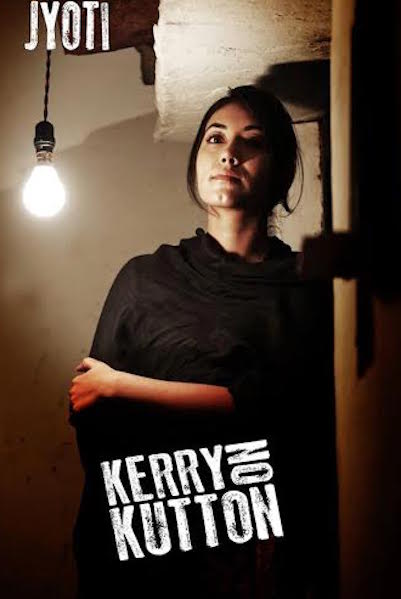
Aradhana Jagota as Jyoti
Aradhana Jagota
How did your transition from modelling to acting happen?
As far as I can remember, I have always wanted to be an actor. In school I was constantly involved in dramatics. Once, in eleventh standard, I was doing a monologue on stage, and when it finished, the audience stood up and started clapping. I loved that feeling of rush. I told my parents about wanting to become an actor and they were cool about it. They said that it was my life and I could do anything with it after I finished my education. We need to have a back up as this is a very fickle industry. So, I finished my graduation in Mass Communication. In the second year of college, I thought that it was the right time to start modelling. I did a lot of print ads in Delhi. When college finished, I shifted to Mumbai and did some more ads. Then 24 happened. After 24 released, Ashok (Yadav, director) approached me for Kerry On Kutton. So modelling has been like a stepping-stone for me.
READ: MODELLING WAS A PLATFORM FOR ME TO GET INTO FILMS – GAURAV ARORA
What drove you to this project, when Ashok first offered it to you?
Ashok was my super senior at college, the Asian School of Media Studies. I was doing my graduation, and he was studying cinema in his post graduation. When his course was about to finish, he had to make a student film. And he knew that I wanted to be in films because we had spoken before. So he asked me if I wanted to act in the project. So we sat down and did a lot of script readings. But we never made the film, though he later made it as a proper short film and won a lot of accolades for it at various film festivals. When he finished writing the script for Kerry on Kutton, he called and asked me if I’d like to be a part of Kerry on Kutton. I said yes! I loved the script. Kerry on Kutton was a very exciting, real and beautiful script for me. It is different and at the same time it is real. That is what attracted me to the film.
Tell us about the preparation that went into your character in Kerry on Kutton.
There was a workshop in Lucknow, which started fifteen days before the shooting started, so that we get a feel of U.P. During that time, I met a lot of girls in the age group of 18-22 years, who have studied from government schools. My character in the film is that of a 16-year-old girl from a government school. Personally, I have been born and brought up in Delhi, and I have had a privileged life with luxury. I haven’t seen a life like that, or known somebody who has seen that type of a life. I wanted to build up my character according to that. I used to have long talks with my maid in Lucknow. That’s how I picked up the dialect and certain nuances of my character.
Kerry on Kutton was a very exciting, real and beautiful script for me
How would you describe Ashok Yadav as a director?
The best part about working with Ashok is that he lets you create a world for yourself. He gives you the liberty to understand the character and live it. Sometimes, I would go to him and give him suggestions for my character. And he would never have a problem with it. If we agreed upon a suggestion, he would let me include it. That is the best thing about him as a director; he gives you the liberty to give your suggestions and lets your character be more ‘you.’
READ: RICHA CHADHA’S BIG SIX FIX FOR ASPIRING ACTORS
What kind of films would you like to explore in the future?
I would be interested in doing films from every genre. I am very greedy as an actor. I would like to do all kinds of films and work with everybody.
Transcribed by Shikhar Goyal

